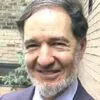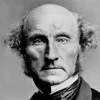HARRIS: SanDeE*, your … your breasts feel weird.
SanDeE*: Oh, that’s ’cause they’re real.
Steve Martin (b. 1945) American comedian, actor, writer, producer, musician
L. A. Story (1991)
(Source)
Quotations about:
natural
Note not all quotations have been tagged, so Search may find additional quotes on this topic.
Genocide is natural! Rape is natural! No, what’s natural is not necessarily good — often it’s repulsive. One of the most important functions of human society, and the driving force behind most political institutions, is to prevent humans from doing what comes naturally.
Jared Diamond (b. 1937) American geographer, historian, ornithologist, author
“Choosing Success,” interview by Catherine Seip, National Review (30 Jun 2006)
(Source)
It is absurd to hold that a man ought to be ashamed of being unable to defend himself with his limbs but not of being unable to defend himself with reason when the use of reason is more distinctive of a human being than the use of his limbs.
[πρὸς δὲ τούτοις ἄτοπον εἰ τῷ σώματι μὲν αἰσχρὸν μὴ δύνασθαι βοηθεῖν ἑαυτῷ, λόγῳ δ᾽ οὐκ αἰσχρόν: ὃ μᾶλλον ἴδιόν ἐστιν ἀνθρώπου τῆς τοῦ σώματος χρείας.]
Aristotle (384-322 BC) Greek philosopher
Rhetoric [Ῥητορική; Ars Rhetorica], Book 1, ch. 1, sec. 12 (1.1.12) / 1355b.1 (350 BC) [tr. Roberts (1924)]
(Source)
(Source (Greek)). Alternate translations:Absurd were it, if inability to defend oneself, in the case of the body be disgraceful, but in the case of the reason, which is more peculiarly the characteristic of man than the use of his body, be not disgraceful.
[Source (1847)]It were absurd, if, while it is disgraceful for a man not to be able to assist himself by his person, it were not disgraceful to be unable to do this by his speech, which is more a peculiarity of man than the exercise of the body.
[tr. Buckley (1850)]It would be absurd that, while incapacity for physical self-defence is a reproach, incapacity for mental defence should be none; mental effort being more distinctive of man than bodily effort.
[tr. Jebb (1873)]It would be absurd if it were considered disgraceful not to be able to defend oneself with the help of the body, but not disgraceful as far as speech is concerned, whose use is more characteristic of man than that of the body.
[tr. Freese (1926)]It would make no sense for an inability to defend oneself by physical means to be a source of shame, while an inability to defend oneself by verbal means was not, since the use of words is more specifically human than the use of the body.
[tr. Waterfield (2018)]It is strange if it is a shameful thing not to be able to come to one's own aid with one's body but not a shameful thing to be unable to do so by means of argument, which is to a greater degree a human being's own than is the use of the body.
[tr. Bartlett (2019)]
Nature, as we know her, is no saint.
Ralph Waldo Emerson (1803-1882) American essayist, lecturer, poet
“Experience,” Essays: Second Series (1844)
(Source)
In effect what Luther said in 1517 was that we may appeal to a demonstrable work of God, the Bible, to override any established authority. The Scientific Revolution begins when Nicolaus Copernicus implied the bolder proposition that there is another work of God to which we may appeal even beyond this: the great work of nature. No absolute statement is allowed to be out of reach of the test, that its consequence must conform to the facts of nature.
In nature nothing is done but in the cheapest way.
If the thought or substance is fully mastered, the style will take care of itself. Good style in writing is like happiness in living — something that comes to you, if it comes at all, only if you are pre-occupied with something else: if you deliberately go after it, you will probably not get it.
We now know that a life which goes excessively against natural impulse is one which is likely to involve effects of strain that may be quite as bad as indulgence in forbidden impulses would have been. People who live a life which is unnatural beyond a point are likely to be filled with envy, malice and all uncharitableness. They may develop strains of cruelty, or, on the other hand, they may so completely lose all joy in life that they have no longer any capacity for effort.
Bertrand Russell (1872-1970) English mathematician and philosopher
Authority and the Individual, Lecture 1 (1949)
(Source)
Collection, with some edits, of the inaugural Reith Lectures, BBC, "Authority and the Individual," No. 1 "Social Cohesion and Human Nature" (1948-12-26).
There are in nature neither rewards nor punishments — there are consequences.
Robert Green Ingersoll (1833-1899) American lawyer, agnostic, orator
“The Christian Religion” (1881)
(Source)
Some will object, that a comparison cannot fairly be made between the government of the male sex and the forms of unjust power which I have adduced in illustration of it, since these are arbitrary, and the effect of mere usurpation, while it on the contrary is natural. But was there ever any domination which did not appear natural to those who possessed it?
John Stuart Mill (1806-1873) English philosopher and economist
The Subjection of Women, ch. 1 (1869)
(Source)













